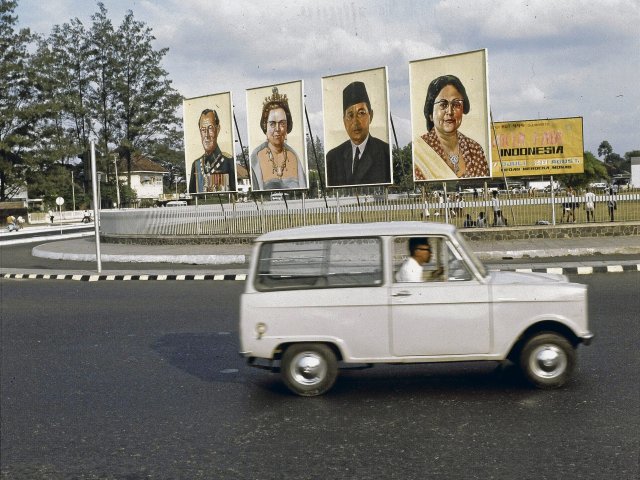Historiography | Fight for memory in Indonesia
Indonesia, with over 280 million people the most populous country in Southeast Asia, is at the beginning of a delicate historical project. The government under President Prabowo Subianto, in office since 2024, is planning a comprehensive overhaul of national historiography – and is facing fierce criticism from academia and civil society.
The initiative, led by nationalist Culture Minister Fadli Zon, is promoted as an "Indonesia-centric" update of existing history textbooks. However, critics see the project less as a scholarly modernization than as a politically motivated project with authoritarian tendencies.
Relapse into authoritarian patternsArchaeologist Harry Simanjuntak, once a contributor to the project, resigned because scientifically recognized approaches were ignored. The independent alliance AKSI (Alliance for Historical Openness) warns against a relapse into authoritarian patterns in which a state-run version of the past is presented as truth. It has launched apetition against the project through the human rights organization Amnesty International.
The Prabowo government has already demonstrated repeatedly "that it is willing to distort history to its advantage and use it as a political tool," writes Jonathan Tehusijarana of the University of Melbourne in an analysis . The planned revision is strongly reminiscent of the "Sejarah Nasional Indonesia" (SNI), which emerged under the authoritarian Suharto regime and provided a state-controlled, one-sided account of Indonesian history.
Human rights activists "concerned"Andreas Harsono of the human rights organization Human Rights Watch also expressed "grave concern" in an email that the project could omit or reinterpret key historical events, thus obscuring human rights violations . He cited as an example that initial drafts severely downplayed the military-backed regime's role in the mass murders of 1965 to 1969—the period during which General Suharto increasingly seized power after the 1965 military coup before officially becoming president in 1967.
At least 500,000 people are estimated to have been killed during the military-led campaign against suspected communists. Harsono added that it was particularly worrying that the minister responsible for the project dismissed the sexual violence against ethnic Chinese women during the 1998 unrest as a mere "rumor" in an interview.
"The government is willing to twist history to its advantage and use it as a political tool."
Jonathan Tehusijarana University of Melbourne
The timeline for the history project is extremely ambitious: The new national history is to be completed by Independence Day on August 17, 2025. Many therefore see the government project as an attempt by Prabowo not only to shape national identity but also to relativize his own role in the past. Prabowo, the son-in-law of former dictator Suharto, has also been accused of human rights violations.
Story with a positive twistThe stated goal is to present history "in a positive tone," says Tehusijarana. For the researcher, this is a clear indication that it's less about historical accuracy than about political narratives. The instrumentalization of the past is also evident in the way national heroes are treated: For example, the announcement of new national heroes on "Heroes' Day" in November 2024 was postponed without explanation, even though the nominations had long been finalized. At the same time, the old debate about the posthumous honoring of former dictator Suharto was surprisingly revived – a proposal that had always been rejected.
The promise to declare the murdered labor activist Marsinah a national heroine seems almost cynical in comparison. An icon of the Indonesian trade union movement who died under dubious circumstances in 1993, presumably murdered by the military. President Prabowo Subianto made the promise on May 1, 2025. Many see it as an attempt to gain union support for the Suharto tribute.
Diverse voices requiredIndonesia is a multi-ethnic country with more than 17,000 islands and hundreds of languages, with a predominantly Muslim population. However, many regions retain strong indigenous traditions. The country's history is complex – from Dutch colonialism to the struggles for independence to the military dictatorship under General Suharto, which only ended in 1998.
A modern, democratic historiography must also consider the voices of the population—women, indigenous groups, former political prisoners, or minorities such as Chinese or Indian Indonesians, Tehusijarana argues. Recent scholarly projects—for example, on Indonesian independence—have attempted precisely this: a multi-perspective narrative. "If the new history project fails to incorporate these perspectives, it will simply become another instrument of the state to create a kind of 'civil religion' that places its own political interests above an honest confrontation with the past," the researcher warns.

nd-aktuell



